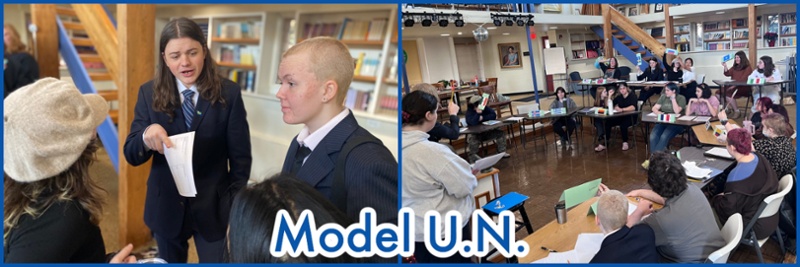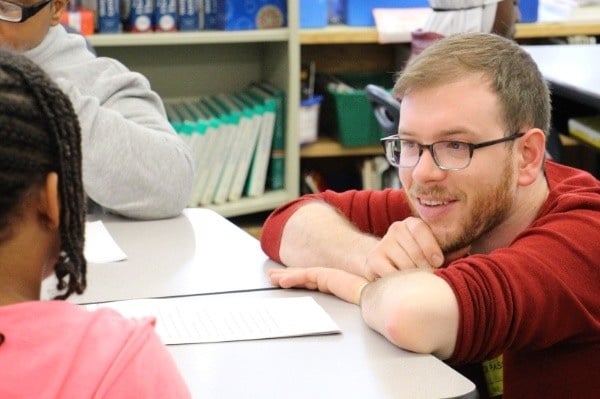Research Projects: Pandemics and Virology
This winter, our English and Science teachers teamed up to guide students through a research and writing unit about the nature of viruses and...

Before the December Vacation, we held a Model U.N. at Rock Point School! In all cores, students spent one or two social studies classes a week since Thanksgiving break preparing for this conference by researching their country and its views over time to form an opinion and speak knowledgeably about a given topic. It was a big ask in a short time, and students truly rose to the occasion.
Our topic was Globalization, which students learned about as the increased movement of people, goods, money, and ideas across international borders. They also explored both positive and negative effects on different countries. The aspect of Globalization students debated for Model U.N. was carbon emissions, specifically the resolution: “Governments must reduce carbon emissions by 15% over the next 15 years.”
At its most basic level, Model U.N. is a debate between students who are representing the viewpoints of countries, rather than themselves. Our structure of debate followed, loosely, that used by the actual United Nations. After the roll call, each country had 2 minutes to present their thoughts on the proposed resolution. Periodically, the moderator (in this case our wonderful teacher Leda) called both moderated and unmoderated caucuses, or times during which the delegates could address each other personally to build alliances and try to sway countries toward their views. In the end, they held a vote on the resolution with a simple majority rule.
Our delegates spoke knowledgeably about their countries, each stating how they planned to vote on the proposed resolution and then explaining why they were taking that stance. Delegates based their opinions on research about prior emissions reduction agreements signed by their country (Kyoto and Paris Agreements, for example), how their countries were doing on reaching those targets, and why they were or were not prioritizing emissions reductions in their national policy agendas.
Students found real nuance in their arguments, often making "yes, and" statements when they were agreeing with the resolution, perhaps speaking about the need for increased reliance on renewables over fossil fuels, or the need to support developing countries as they grow their economies while reducing emissions. Students voting against the resolution gave reasoning that ranged from developing nations' need to prioritize economic growth before curbing emissions to an outsized responsibility for mitigation going to those most responsible for the climate crisis. During Moderated and Unmoderated Caucuses, students debated politely and firmly, with at least one country deciding to change their vote! In the end, the resolution passed with 9 votes (6 votes against and 2 countries abstaining).
Well done to all of our honorable delegates!

This winter, our English and Science teachers teamed up to guide students through a research and writing unit about the nature of viruses and...

Before December break, we had a very special visitor at Rock Point! Spot the Robot came to show us some of what is possible in the field of robotics....

Sam Holland works to make the imagined real. As a former engineering student of our math tutor, Michael Coleman, Sam took his curiosity about how...